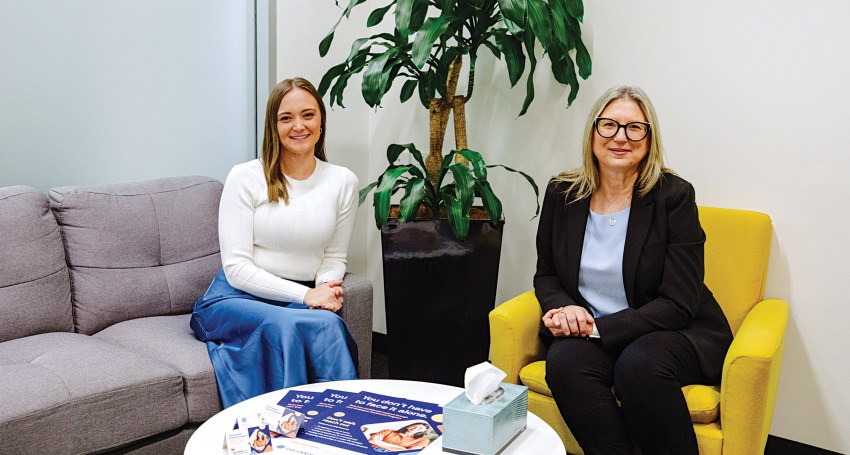Committed to worker wellbeing
People
There was a time when it was frowned upon if employees allowed their personal lives to impact their work but employers are increasingly recognising the importance of providing holistic support to their staff.

Promoting wellbeing, mental health and work life balance is entrenched in many workplaces, resulting in a significant rise in the number of employers seeking the services of Employee Assistance Program (EAP) providers such as Access SA.
A social enterprise of Centacare Catholic Community Services, Access SA is one of the most established and largest EAP providers in the State, having been in operation for 36 years and supporting nearly 500 organisations.
“We are prominent in the community, especially in the Catholic community,” said Natalie Tucker, manager of the recently rebranded Access SA.
Advertisement
“We reach a broad range of organisations and individuals whether it be in health and educational settings, aged care providers, other NGOs, IT infrastructure, you name it, even transport companies.”
While EAP is not mandatory for employers, Natalie said research showed the benefits such as lower absenteeism, a positive work life balance and less turnover of staff.
“There is a far greater focus on the psychological safety of individuals in the workplace,” Natalie said.
“People can’t just switch off; their personal and work lives are intertwined.
“A lot of the organisations we work with are in social or medical streams so they are supporting vulnerable people…if you can create a culture where it’s okay to reach out for help, then they’re going to be able to show up for the people they are there to support.”
While counselling sessions are confidential, Natalie said employers are provided with non-specific information such as how many people saw a counsellor, why they presented and whether they felt the service worked. Feedback forms for employees also provided valuable information.
Centacare executive director Leanne Haddad said the organisation was committed to delivering EAP services that were “values-based in a way that reflects our commitment to employee wellbeing, ethical conduct and inclusivity”.
With 19 counsellors from a range of disciplines, Access SA provides individual counselling at Centacare sites across the city and regional areas. Phone and video counselling is also available.
Employers sign up to an annual membership with Access SA and determine how many counselling sessions they need for staff. Counselling is also available for employees’ family members, including children over the age of 10, and volunteers.
If there is a critical incident at a workplace, an Access SA team goes out to the site for a group debrief or one-on-one support for as long as required.
The team also provides tailored information sessions about mental health awareness, preventing burnout, vicarious trauma and coping with change.
Cris Pirone, Access SA team leader, began working as a counsellor for Centacare’s EAP service 30 years ago and is just as passionate today about “making a difference and supporting people to manage difficult challenges with a sense of resilience and hope”.
Advertisement
A registered psychologist, she recalled the early days of Centacare’s EAP service when there were “two or three counsellors” and the focus was on training and “stress management” rather than individualised support.
“There was more resistance back then from staff, we were often invited in by leadership but not always well received,” she said.
“Now it’s often requested by the staff which is lovely to hear.”
“I think we are much more aware of the impact of stresses that occur in people’s lives that can impact their work lives, and on the other hand stresses at work can impact their personal lives.”
Cris said her experience of working with staff affected by traumatic incidents or organisational change was that people respond in different ways and with varying expectations.
“Some might think that they are okay or want to seek out their own support, but if we are providing assistance on site, they might decide to check it out,” she said.
“After that initial support there is the beauty of being able to link up with ongoing counselling.”











